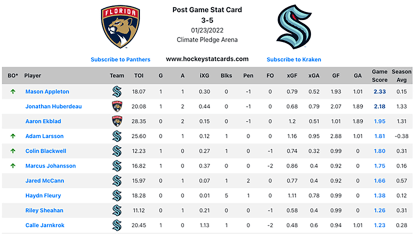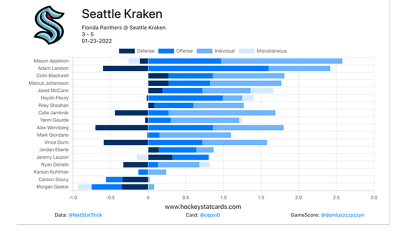Goals rightly draw attention, of course, but Hakstol intentionally mentioned Appleton's body of work in the entire game, not just his score. In addition to the game-winner, in 18:04 of ice time, the forward also had an assist, five shot attempts (including three on target), a hit and two takeaways. As a total effort how does that measure up? We're back to our question of who had the best game - is there a way to quantify that?
Let's dig in.
In 2016, Dom Luszczyszyn, now with The Athletic, developed a measure called "Game Score." His goal was to use publicly available stats that you find on an NHL stat sheet, assign a weight to each, and combine them in a meaningful way to evaluate how productive a player was within in a single game. (You can find the original calculation HERE; it was updated in 2019, that write-up is HERE.)
"(Game Score) is meant to answer, 'who had the best game' by adding proper perspective to a combination of a player's total contributions and into an easily understood all-in-one stat," Luszczyszyn wrote.
Which brings us back to Appleton.
Thanks to Cole Palmer's site, Hockey Stat Cards, we can get Game Score calculations shortly after any NHL game concludes.
Here's a look at the top 10 skaters in the Florida-Seattle game (full stat card HERE):





















